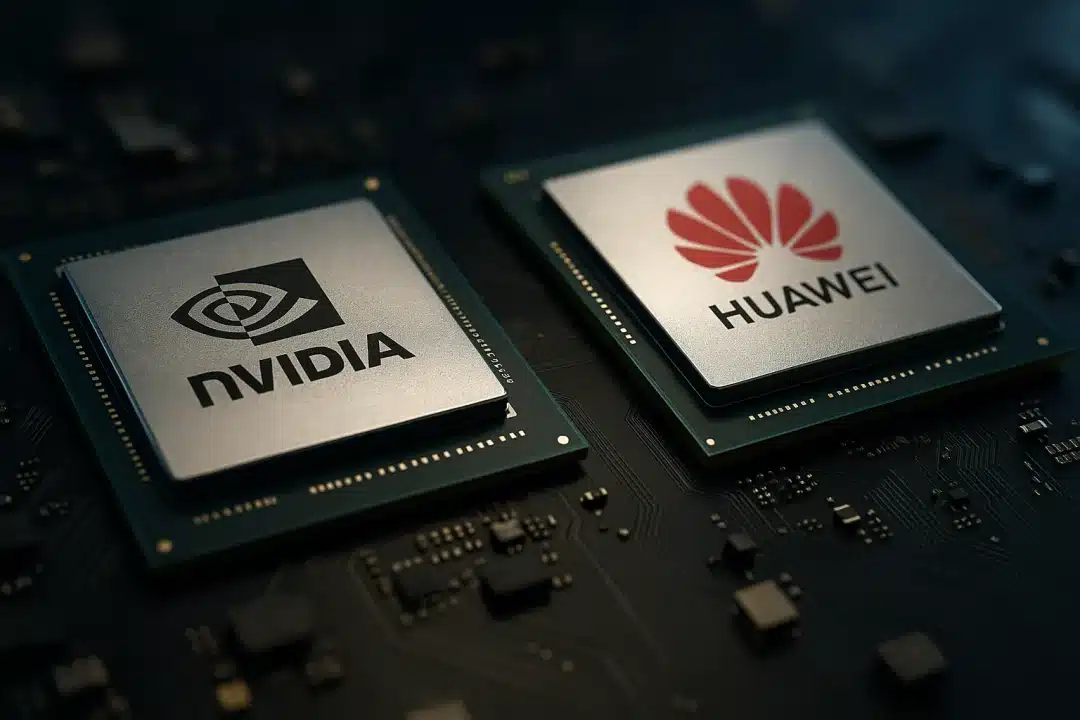
The Trump administration is considering stricter regulations on the export of advanced AI chips, a move that could have far-reaching implications for U.S. tech giants like Nvidia and the broader semiconductor industry.
These potential policy changes come as Chinese companies, notably Huawei, make significant strides in AI technology, challenging America’s longstanding dominance in the sector.
Proposed Export Restrictions and Industry Concerns
The administration’s proposed changes aim to tighten controls on the export of high-performance AI chips, including eliminating the current tiered system that determines the quantity of chips countries can obtain.
This shift is intended to prevent advanced computing capabilities from reaching adversarial nations.
Nvidia CEO Jensen Huang has publicly expressed concerns about these potential restrictions.
He emphasized the need for regulations that reflect the current global landscape, stating, “Whatever [the new diffusion rule] turns out to be, it really has to recognize that the world has changed fundamentally since the previous diffusion rule was released.”
Huawei’s Ascend in AI Technology
In response to U.S. export controls, Huawei has accelerated the development of its AI capabilities.
The company recently introduced the CloudMatrix 384 AI chip cluster, which connects 384 Ascend 910C processors. While individual chips may not match Nvidia’s GB200 in performance, the cluster reportedly surpasses Nvidia’s NVL72 system by 67% in overall compute power and offers over three times the memory capacity.

However, the CloudMatrix system comes with trade-offs, including higher energy consumption and increased operational costs due to less mature software support.
Market Reactions and Economic Implications
The potential for stricter export controls has already impacted the stock market. Nvidia’s shares have experienced volatility, with concerns that these policies could hinder the company’s growth and profitability.
Additionally, the broader semiconductor industry faces uncertainty, as companies grapple with the implications of reduced access to international markets.
Economists warn that such restrictions could have unintended consequences, including:
- Reduced Global Competitiveness: Limiting exports may encourage foreign companies to develop their own technologies, diminishing U.S. influence in the global tech landscape.
- Economic Slowdown: The semiconductor industry is a significant contributor to the U.S. economy. Restrictions could lead to decreased revenues and job losses.
- Supply Chain Disruptions: Tighter controls may strain international supply chains, affecting various sectors reliant on advanced chips.
The Road Ahead
As the administration deliberates on implementing these export restrictions, industry leaders and policymakers must weigh the potential national security benefits against the economic and technological costs.
Ensuring that regulations protect U.S. interests without stifling innovation or ceding ground to international competitors like Huawei is paramount.
The coming months will be critical in determining the trajectory of U.S. leadership in AI and semiconductor technologies.
Stakeholders across the industry will be closely monitoring policy developments and advocating for balanced approaches that safeguard both security and economic vitality.
